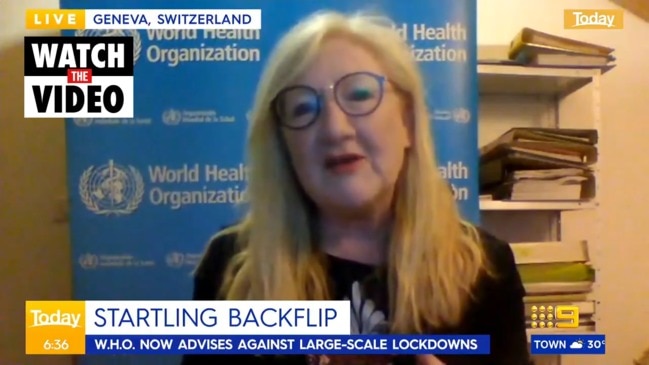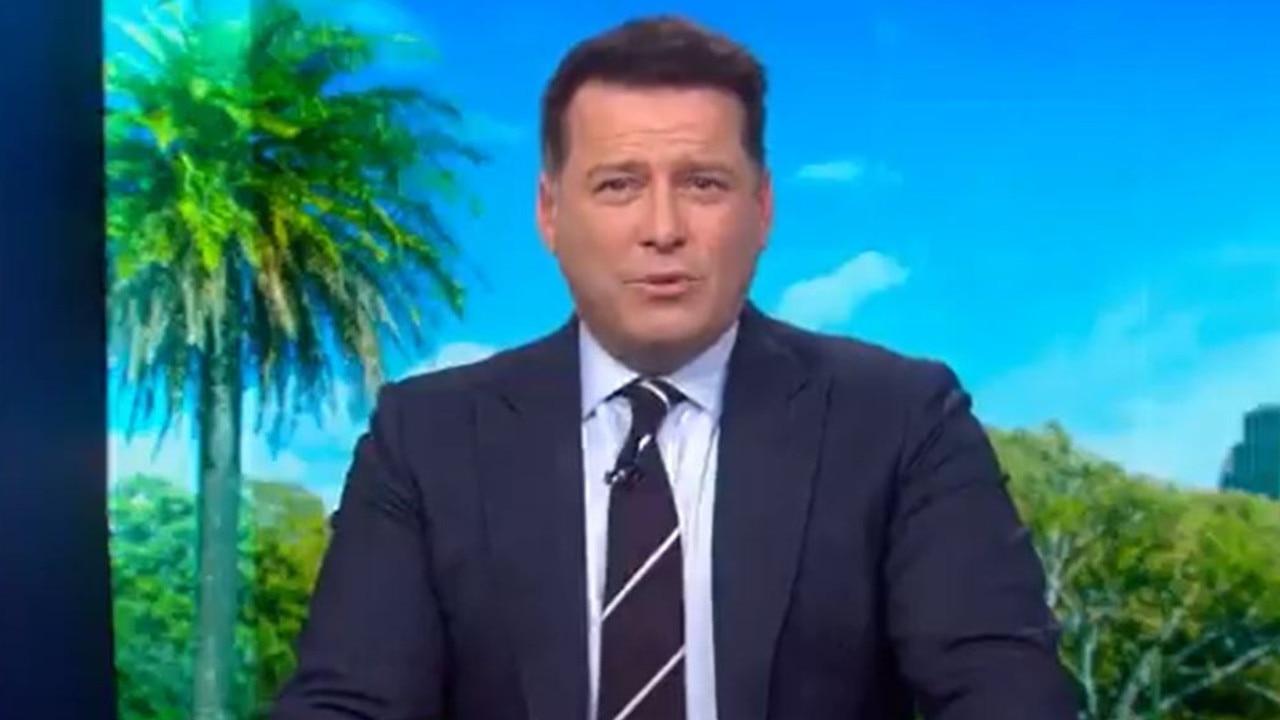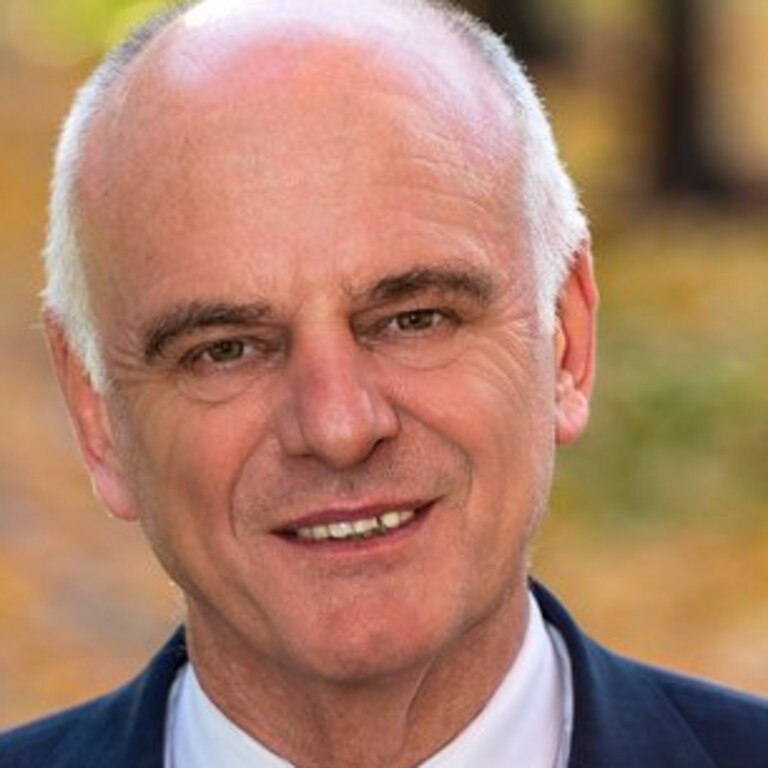‘I’m so confused’: WHO says lockdown backflip reports are wrong
A World Health Organisation doctor fronted Australia to talk about a major backflip on lockdowns. Her explanation left everyone confused.

A World Health Organisation (WHO) doctor claims reports it has backflipped on lockdowns are wrong, but the new advice she gave on the Today show this morning left Karl Stefanovic scratching his head.
Yesterday, another doctor from the organisation, Dr David Nabaro, appealed to world leaders yesterday, telling them to stop “using lockdowns as your primary control method” of the coronavirus.
He also claimed that the only thing lockdowns achieved was poverty – with no mention of the potential lives saved.
This morning Dr Margaret Harris appeared on the Today show to talk about the U-turn in advice.
She claimed the comments on Dr Nabaro were “misreported” by the world’s media, but the advice she gave to Australia left both Today hosts visibly confused.
A startling backflip by the World Health Organisation, now recommending global leaders stop locking down countries and economies. #9Today pic.twitter.com/MOUQ3iryzw
— The Today Show (@TheTodayShow) October 11, 2020
“It is not a backflip, it is not a change in advice,” she said. “What it is a bit of misreporting that has gone on, on the weekend.
“What those reports are based on were a conversation our special envoy, Dr David Nabaro had about the role of lockdowns.
“Lockdowns are basically mass quarantines and governments have got to the stage where they have huge transmission going on and is it not clear exactly where the chains of transmission are, it is a thing that governments have resorted to.
“But right from the start we have said what we would really like to see is a strong tracking, tracing, the community hand washing, mask wearing so that you don’t have to go into lockdown.
“Now a lot of countries have had to go to lockdown but we say do all of the other things to avoid going there, because the economic and social costs are very high.”
Stefanovic asked whether that means, in Australia, whether Queensland should have its borders closed, given there are no cases there.
“This is something that different authorities make different decisions about and we as the WHO don’t come in and boss around individual countries,” she said. “We trust different countries to look at what works in their society. What isn’t working in their society and what will be the best way to prevent transmission.”

Stefanovic said her answer was “slightly soft”, given there was no mass outbreaks in Queensland.
“Well, what we really say is do it all,” she responded. “We say don’t just do one thing. Don’t just rely on your border closure or your mass quarantine, do absolutely everything you can because where we are seeing a failure or we are seeing a rise in cases people have focused just one thing and this is again where lockdowns can be problematic.
“When people come out of lockdowns they think, ‘OK, it is over, we don’t have to do all of the other things any more’ and in fact it is all the other things that really work.”
She was then asked whether Australia should open its borders to the rest of the world.
“What we are seeing that really works is strong quarantine and strong monitoring at borders,” she said. “So if you are looking at, really following everybody who comes in, really putting them in quarantine, really putting them in quarantine, really making sure that happens, then we are certainly seeing that is what prevents transmission.”
Stefanovic asked whether this means we should open the borders but still enforce this two-week quarantine when people arrive.
“So what we are saying is exactly, manage your borders. No whether it is open or closed but really, really manage your borders,” Dr Harris said.
Both Today hosts were visibly muddled by this point. Stefanovic finished the interview by saying “I’m so confused”.
WHAT DID THE WHO SAY?
Dr Nabarro told T he Spectatorthat the WHO does not “advocate lockdowns as the primary means of control of this virus”.
“The only time we believe a lockdown is justified is to buy you time to reorganise, regroup, rebalance your resources, protect your health workers who are exhausted, but by and large, we’d rather not do it,” he said.
Dr Nabarro’s main criticism of lockdowns involved the global impact, explaining how poorer economies that had been indirectly affected.
“Just look at what’s happened to the tourism industry in the Caribbean, for example, or in the Pacific because people aren’t taking their holidays,” he said.

“Look what’s happened to smallholder farmers all over the world. … Look what’s happening to poverty levels. It seems that we may well have a doubling of world poverty by next year. We may well have at least a doubling of child malnutrition.”
Melbourne’s lockdown has been hailed as one of the strictest and longest in the world. In Spain’s lockdown in March, people weren’t allowed to leave the house unless it was to walk their pet. In China, authorities welded doors shut to stop people from leaving their homes. The WHO thinks these steps were largely unnecessary.
Instead, Dr Nabarro is advocating for a new approach to containing the virus.
“And so, we really do appeal to all world leaders: stop using lockdown as your primary control method. Develop better systems for doing it. Work together and learn from each other.”
— with Alex Turner-Cohen




